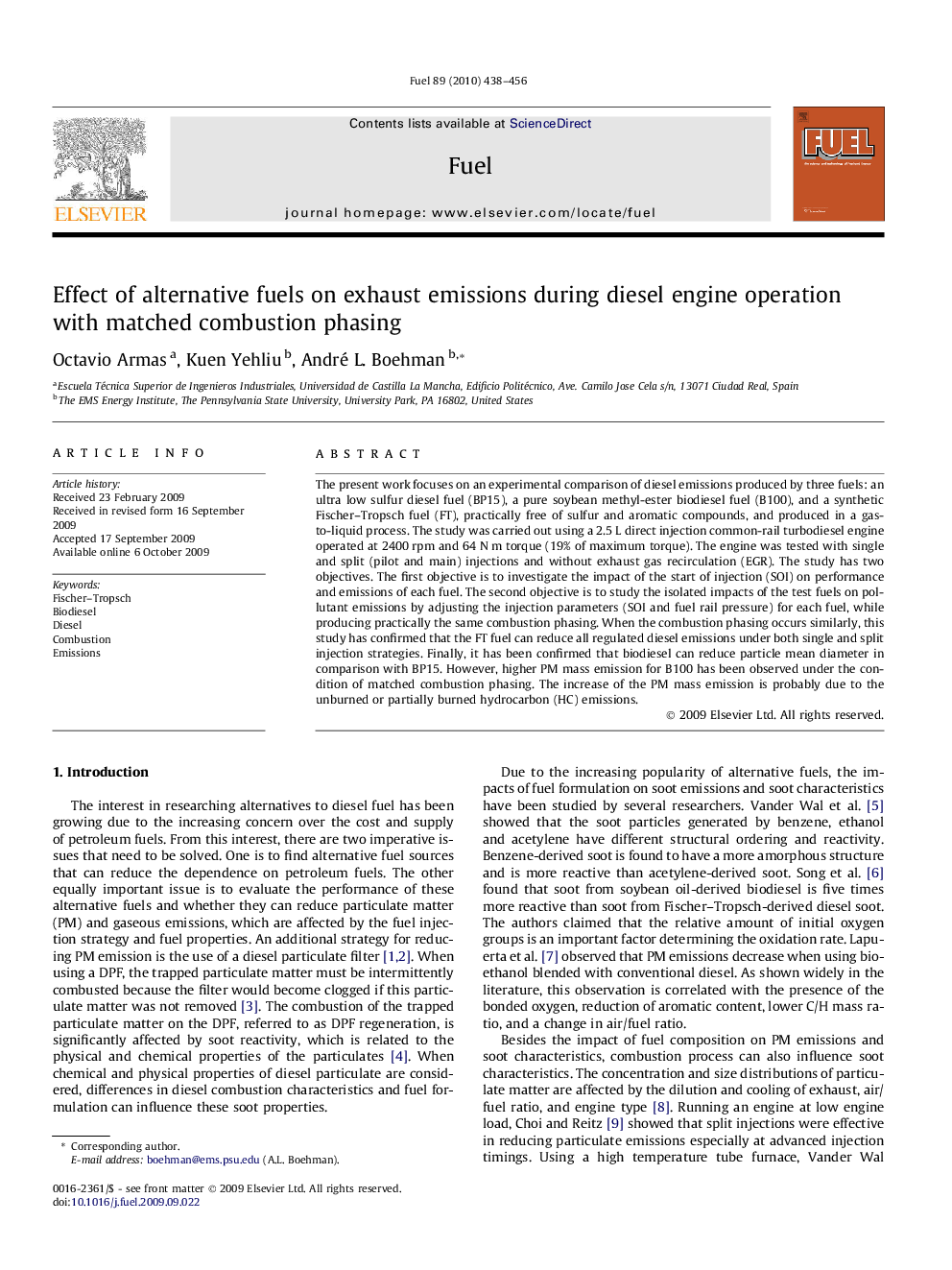| Article ID | Journal | Published Year | Pages | File Type |
|---|---|---|---|---|
| 206612 | Fuel | 2010 | 19 Pages |
The present work focuses on an experimental comparison of diesel emissions produced by three fuels: an ultra low sulfur diesel fuel (BP15), a pure soybean methyl-ester biodiesel fuel (B100), and a synthetic Fischer–Tropsch fuel (FT), practically free of sulfur and aromatic compounds, and produced in a gas-to-liquid process. The study was carried out using a 2.5 L direct injection common-rail turbodiesel engine operated at 2400 rpm and 64 N m torque (19% of maximum torque). The engine was tested with single and split (pilot and main) injections and without exhaust gas recirculation (EGR). The study has two objectives. The first objective is to investigate the impact of the start of injection (SOI) on performance and emissions of each fuel. The second objective is to study the isolated impacts of the test fuels on pollutant emissions by adjusting the injection parameters (SOI and fuel rail pressure) for each fuel, while producing practically the same combustion phasing. When the combustion phasing occurs similarly, this study has confirmed that the FT fuel can reduce all regulated diesel emissions under both single and split injection strategies. Finally, it has been confirmed that biodiesel can reduce particle mean diameter in comparison with BP15. However, higher PM mass emission for B100 has been observed under the condition of matched combustion phasing. The increase of the PM mass emission is probably due to the unburned or partially burned hydrocarbon (HC) emissions.
